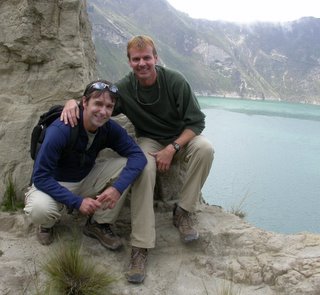The Green Bubble
The Green Bubble: "Green anti-modernism brings with it other contradictions. Despite the rhetoric about 'one planet,' not all humans have the same interests when it comes to addressing global warming. Greens often note that the changing global climate will have the greatest impact on the world's poor; they neglect to mention that the poor also have the most to gain from development fueled by cheap fossil fuels like coal. For the poor, the climate is already dangerous. They are already subject to the droughts, floods, hurricanes, and diseases that future warming will intensify. It is their poverty, not rising carbon-dioxide levels, that make them more vulnerable than the rest of us. By contrast, it is the richest humans--those of us who have achieved comfort, prosperity, and economic security for ourselves and for our children--who have the most to lose from the kind of apocalyptic global-warming scenarios that have so often been invoked in recent years. The existential threat so many of us fear is that we might all end up in a kind of global Somalia characterized by failed states, resource scarcity, and chaos. It is more than a little ironic that at the heart of the anti-modern green discourse resides the fear of losing our modernity.
Nonetheless, it has become an article of faith among many greens that the global poor are happier with less and must be shielded from the horrors of overconsumption and economic development--never mind the realities of infant mortality, treatable disease, short life expectancies, and grinding agrarian poverty. The convenient and ancient view among elites that the poor are actually spiritually rich, and the exaggeration of insignificant gestures like recycling and buying new lightbulbs, are both motivated by the cognitive dissonance created by simultaneously believing that not all seven billion humans on earth can "live like we live" and, consciously or unconsciously, knowing that we are unwilling to give up our high standard of living.
Nonetheless, it has become an article of faith among many greens that the global poor are happier with less and must be shielded from the horrors of overconsumption and economic development--never mind the realities of infant mortality, treatable disease, short life expectancies, and grinding agrarian poverty. The convenient and ancient view among elites that the poor are actually spiritually rich, and the exaggeration of insignificant gestures like recycling and buying new lightbulbs, are both motivated by the cognitive dissonance created by simultaneously believing that not all seven billion humans on earth can "live like we live" and, consciously or unconsciously, knowing that we are unwilling to give up our high standard of living.


<< Home